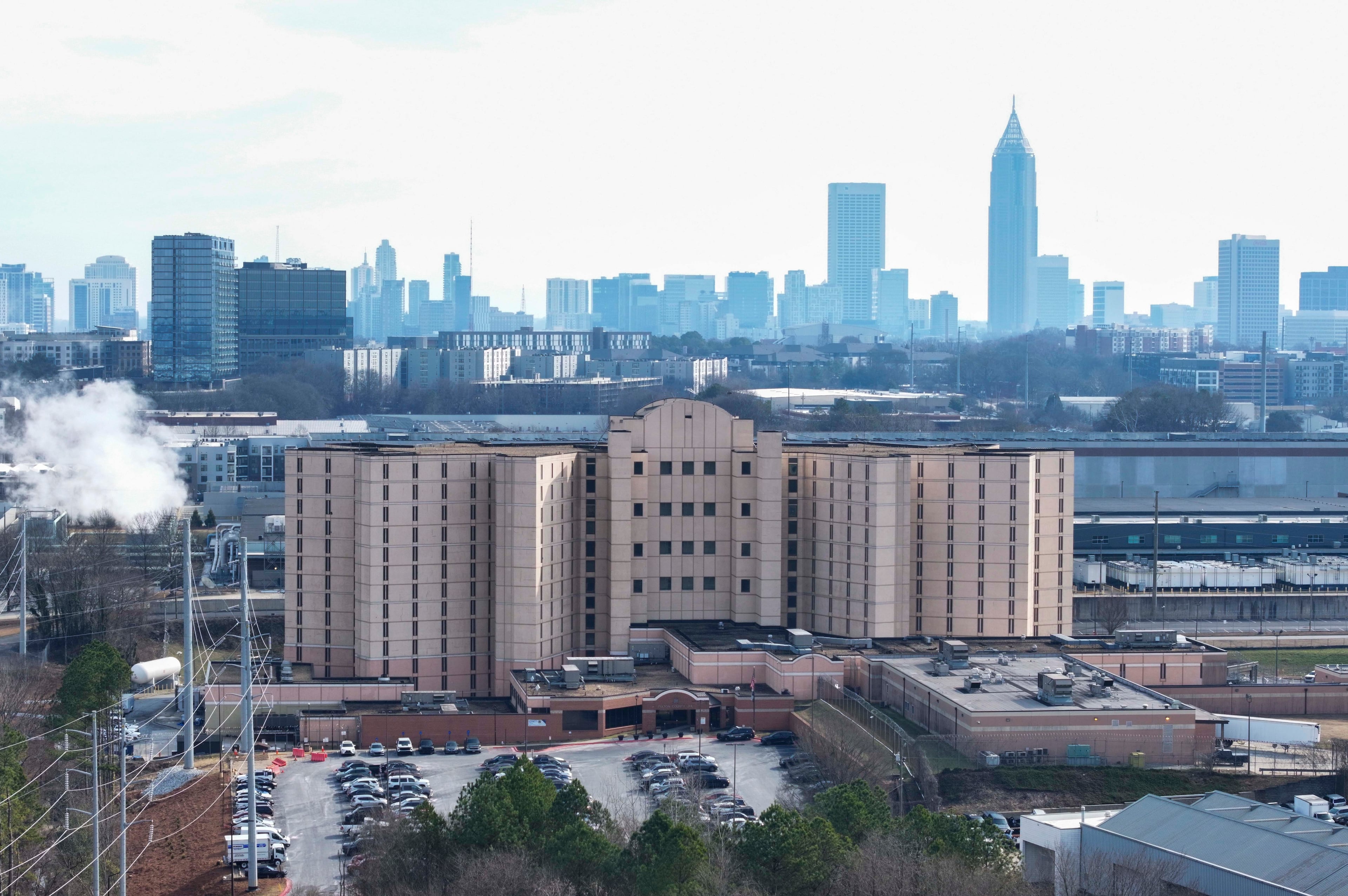Georgia prison conditions at crisis level, protesters say

Protesters on Tuesday called on Gov. Brian Kemp to immediately address deadly conditions, understaffing and medical neglect inside the state prison system.
Waving “Incarcerated Lives Matter” signs and posters with pictures of their loved ones, the protesters jammed onto the sidewalk across from the Governor’s Mansion hoping to get Kemp’s attention.
The Human and Civil Rights Coalition of Georgia, which works on behalf of people incarcerated across the state, said Kemp has failed to take action in spite of crisis-level conditions and widespread corruption in prisons across the state.
“What do we want?” Brian Randolph, the coalition executive director shouted to the crowd. “Justice!” the protesters responded.
Some protesters shared their stories of loss, including Carrie Proffitt, who said her son died in prison this year and she’s still waiting to find out why. “We shouldn’t be bringing them home in caskets,” she told the crowd.
The protest played out in the wake of Sunday’s death of Correctional Officer Robert Clark. Prison officials said Clark, 42, died shortly after being attacked by a prisoner armed with a homemade weapon at Smith State Prison in Glennville, a troubled facility with a history of violence and corruption.
Kemp’s office did not immediately respond to the AJC’s request for comment.
For more than two years, others have also called on the state to take action to stem violence and deteriorating prison conditions. In February 2021, former prisoners and family members of current inmates pleaded with a state Senate committee for more humane treatment of prisoners. The advocates said that a guard shortage had pushed conditions to a crisis point.
Later that year, the Department of Justice launched an investigation into violence and conditions inside Georgia prisons. Then last year, after The Atlanta Journal-Constitution revealed mounting gang violence and extortion at Pulaski State Prison, U.S. Sen. Jon Ossoff asked the FBI to investigate. He called the situation at Georgia’s second-largest prison for women “tragic and wholly unacceptable.”
At Tuesday’s protest, Sen. Josh McLaurin, D-Atlanta, said he is in frequent contact with the Department of Corrections pushing for improvements. But he said the problems are so vast that fixing the state’s prison system will require more than attention from the governor’s office. “It takes every elected official in the state recognizing that this is the human rights crisis of our time,” he said.
“We’ve got a very broken system,” he said.

Protesters Tuesday said violence has grown across the prison system because staffing levels are so low that officers can’t maintain control.
At Smith State Prison, which is chronically understaffed, violence has been raging for months. In addition to Clark’s slaying, six inmates have been killed this year, according to an AJC review of death records and mortality reports. Records also show that fights this year involving multiple inmates have resulted in at least a dozen prisoners being hospitalized.
Reshanda Russell said she flew in from Michigan for the protest. She said her son was stabbed when he was at Smith State Prison and has been abused at another prison. She had a t-shirt made with her son’s picture alongside hers. “I am my son’s advocate. I am my son’s voice,” the t-shirt said. She said she made the trip to highlight deplorable conditions, hoping that things would change.
Letha Rouse said she came from Brunswick because she fears for her nephew’s life. She said a video posted on social media last month showed him being abused and beaten by other prisoners. “I just want justice,” she said.
The flow of drugs and other contraband is also fueling violence, GDC officials have acknowledged, and in an investigation published last month, The Atlanta Journal-Constitution revealed that hundreds of prison employees have been arrested for smuggling in contraband, usually illicit drugs and cellphones.
The AJC in recent years has repeatedly documented numerous, serious problems in the prison system.
In April, the AJC revealed that an inmate lay dead in his bunk for five days — his body stuffed inside a mattress and decomposing — before anyone on the prison staff responded.
“It takes every elected official in the state recognizing that this is the human rights crisis of our time."
In December, the AJC told the story of Daniel Luke Ferguson, who while serving a sentence for murder killed two other prisoners and slit the throat of a third, who survived. Advocates complained then that the Georgia Department of Corrections did not adequately protect prisoners from violent attacks.
The AJC also reported in 2022 that an unprecedented number of inmates had committed suicide.
In other investigations, the AJC has exposed problems with medical care in prisons. In 2019, an investigation found that at least a dozen inmates have died from diabetic ketoacidosis, a condition that is fatal only when diabetes is left untreated.
Last December, Kemp announced he was appointing Tyrone Oliver as the new commissioner of the Department of Corrections. Oliver replaced Timothy Ward, who was appointed to join the parole board. While Kemp and the Georgia General Assembly have raised correctional officer salaries to try to deal with understaffing problems, the governor has said little about conditions at the state prisons.
Earlier in 2022, Kemp announced that the state planned to open two new prisons to replace four outdated ones, and the state closed Georgia State Prison, transferring prisoners to other GDC facilities.
Our reporting
The AJC’s most recent investigation of the Georgia Department of Corrections uncovered more than 425 cases in which Georgia Department of Corrections employees have been arrested since 2018 for crimes on the job. At least 360 people employed at state prisons have been arrested for smuggling in contraband, usually illicit drugs and cellphones, the investigation found. That contraband is fueling violence inside the prisons and outside, GDC officials acknowledged.
Previously, the AJC has exposed how prison system failures have led to mounting gang violence, record suicides and prisoners failing to receive life-saving medical care.



